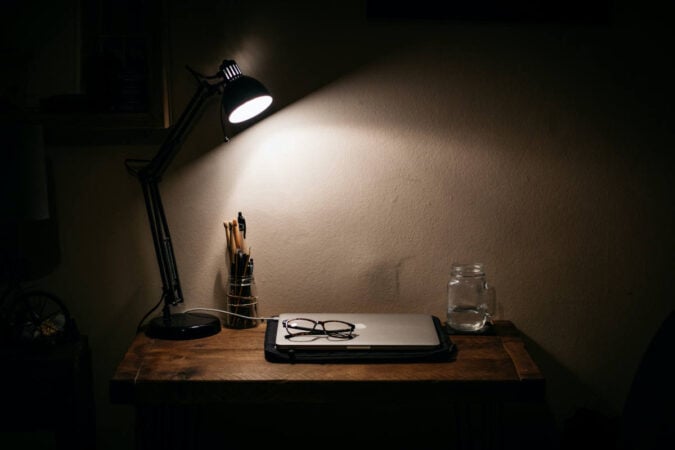Do you ever feel irritated? It’s not quite anger, but more of a quiet and continual lava flow of irritation, just burbling under your skin.
You struggle to contain it sometimes.
Someone steps right in front of you while on the sidewalk and you have to abruptly stop walking in order to avoid them but they can’t even be bothered to say a quick, “Sorry”.
Want to take more action on your goals?
Book a complimentary Strategy Session.

The lava flow increases.
A few minutes later, you try to look up some important time-sensitive info on your cell phone. The page is taking forever to load. Great… Internet connectivity issues.
Add a bit more lava. The heat is intensifying.
You walk just a few minutes down the street and every single dog is aggressively barking at you from their balconies or front yard. Three barking dogs on your right, two on your left. A little further down the gauntlet, more dogs come out. It puts you on edge because you’re not sure if they’re contained or if some of them might attack.
The lava river is now overflowing and the containment walls are about to break. Look out!
An irritable mess
Each of those scenarios could be considered a small and insignificant event. But when you experience a series of those in your day or throughout your week, it all adds up and creates an irritable mess.
Irritability seems like a small thing. It’s common, and it seems normal and justified.
Irritation is a starting form or micro-form of anger and if we ignore it, it can ignite into full-blown anger. Irritation can manifest through underlying anger that we might be carrying.
Irritation and anger are unpleasant emotions. Notice how you feel when experiencing them:
Muscles are contracted and tight. We feel like we’re ready to fight or physically defend ourselves. We feel “heavier” and it’s harder to find the humor in things. Breathing is restricted and we have tension in our face. Negative thoughts repeat in our heads.
“Something is happening that I think shouldn’t be happening. I do not accept this.”
That’s the base thought that causes that feeling of irritation and on a stronger scale, anger.
“I don’t like this reality. I want a better version of reality. My version.”
As we know, this is impossible. None of us have this level of control over external events and people.
How to Reduce Feeling Irritated
Here are a few ideas to experiment with. Try these out and see how they work for you.
1. Look for the positive
Focus on what’s working well in your life. Actively look for what’s positive, even small things. Change “the story” that runs in your mind and craft a more positive version. Positive thoughts will create positive feelings, and that irritability will start to settle down.
2. Do some short gratitude sessions
Spend at least a couple minutes in the morning to think about a few things that you’re grateful for. You could even write out a short list. Think about these items and notice any positive feelings that come up as a result. Hold on to that positive, “light” feeling and carry it throughout your day.
3. Practice deep, relaxed breathing
When you notice that you’re irritated (or at any point in your day), take a few slow, deep breaths. Most of the in-breath should go into your diaphragm (or belly area) first and then towards the end of the in-breath, you’ll feel it start to fill your chest. On the out-breath, the air leaves the chest first, followed by the belly area. You should feel calmer after doing a few mindful breaths.
4. Do daily movement and/or exercise
Staying active can help you shake off stress and irritation. For some people, exercise can feel meditative and have a calming effect. Even something as simple as a half-hour walk or stretch session can have a positive impact on reducing any feelings of irritability.
5. Stop eating trigger foods
Sugar, alcohol, caffeine and foods that you might be allergic or sensitive to, can all cause irritability. If you often feel irritable and you’re not sure why, it could be linked to what you’re eating or drinking. Identify your trigger foods and do your best to avoid them. You’ll feel much better when you do!
6. Get enough sleep
Lack of sleep makes most people feel irritable. This can last the whole day until you take a nap or head to bed at the end of the evening. If you get a great night’s sleep, you’ll wake up feeling good and ready to enjoy the day.
7. Resolve pending issues
Is there something that’s been bothering you? Are you dealing with too many tasks and responsibilities right now? Have you been struggling for weeks or months to make a difficult decision? These can all cause some internal unrest and a background hum of irritability. When we take action on any challenges or issues that we’re dealing with, this can feel very freeing and like a weight has been lifted off our backs.
Taking charge of the situation
To start with, you can take just one or two of the above actions to help reduce or even eliminate irritability so that you can start enjoying your days again. More importantly, you won’t be accumulating any further anger and this will have a very positive effect on your work, health and relationships.
Got a question or comment? Just reply in the comments section below.
Keep going for your goals,
Nigel
PS: Want to reach your goals faster? Check out one of the online accountability coaching programs and book a free Coaching Call.






